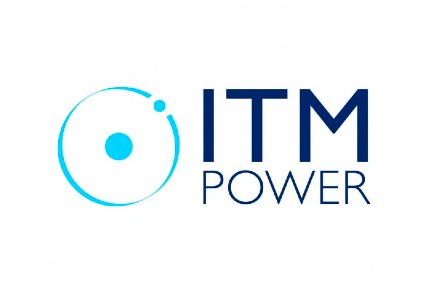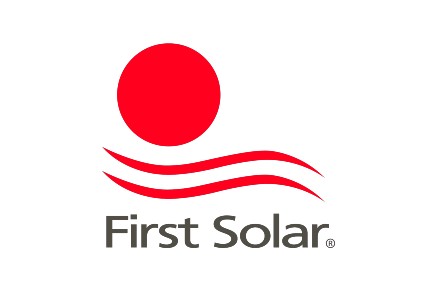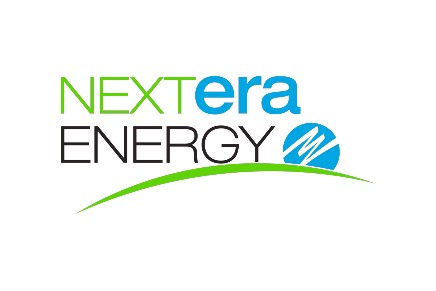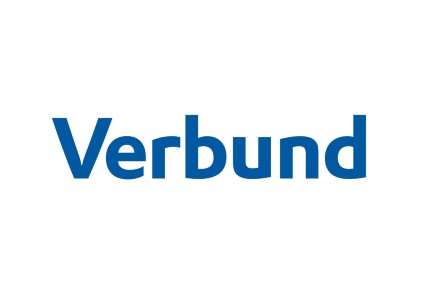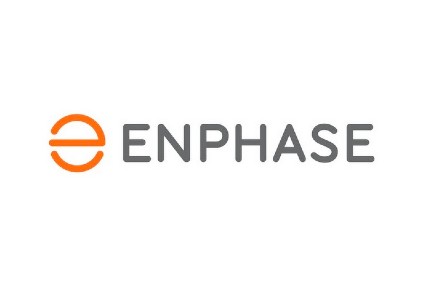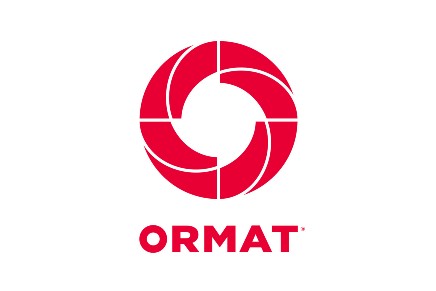Renewable energy stocks are enjoying a renaissance, and it’s not hard to see why. Despite recent falls, Brent Crude hit a multi-year high of $140/barrel in 2022, while natural gas prices are consistently trading at prices tenfold higher than pre-pandemic levels.
These commodities are being driven by two factors: the pandemic-induced collapse and the surge of demand, and two-way sanctions in place over Russia’s invasion of Ukraine dampening supply.
This means the top renewable energy stocks to watch could all see share price increases soon.
Also consider: Compare UK trading platforms to buy shares
Top 10 Renewable Energy stocks to watch 2025
Remember: this list is not a personal recommendation and does not constitute financial advice. Do not buy these investments solely based on what you read in this article. These picks do not constitute personal recommendations or financial advice.
1. SSE
FTSE 100 stalwart SSE is one of the UK’s biggest renewable energy firms by market cap and operates across the United Kingdom and Ireland.
SSE is one of the UK’s largest electricity network companies. It develops and operates low-carbon infrastructure including onshore and offshore wind, hydropower, electricity transmission and distribution grids, and gas-fired generation.
Key assets in development include Seagreen, the world’s deepest fixed-bottom wind farm, and Dogger Bank, which will be the largest offshore wind farm in the world.
The UK’s ‘national clean energy champion’ has already earmarked £12.5 billion for green investments by 2026, planning to double its renewable generation capacity to 8GW.
Source: The Motley Fool
Best platforms to buy shares
- Interactive Investor – Low, flat fee of £9.99 per month
- Freetrade – Get a free share
- InvestEngine – 0% commission
{etoroCFDrisk}% of retail investor accounts lose money when trading CFDs with this provider. You should consider whether you can afford to take the high risk of losing your money.
2. Greencoat UK Wind
Greencoat UK Wind is a FTSE 250-listed renewable infrastructure fund, which invests predominantly in operating UK wind farms to generate income. It offers an attractive, sustainable dividend, which increases in line with inflation, while simultaneously preserving capital in real terms.
The Greencoat UK Wind fund is currently invested in 43 wind farms with a net generating capacity of 1,442MW. Its assets have produced over 14.4TWh of power since its IPO in March 2013.
Source: The Motley Fool
Best platforms to buy shares
- Interactive Investor – Low, flat fee of £9.99 per month
- Freetrade – Get a free share
- InvestEngine – 0% commission
{etoroCFDrisk}% of retail investor accounts lose money when trading CFDs with this provider. You should consider whether you can afford to take the high risk of losing your money.
3. ITM Power
ITM Power is a London Stock Exchange-listed designer and manufacturer of electrolysers. Touted by backers as the answer to the climate crisis, electrolysers generate green hydrogen power using only renewable electricity and tap water.
Sales revenue grew by 30% in 2021 to £4.3 million, mostly from selling electrolysers, conducting consulting services, and performing maintenance support on its systems.
However, as a high-risk growth stock, operating costs are eating away at possible profits. It made a full-year loss of £27.8 million in 2021, underscoring the dangers of penny stock investing.
Source: Freetrade
Best platforms to buy shares
- Interactive Investor – Low, flat fee of £9.99 per month
- Freetrade – Get a free share
- InvestEngine – 0% commission
{etoroCFDrisk}% of retail investor accounts lose money when trading CFDs with this provider. You should consider whether you can afford to take the high risk of losing your money.
4. Ørsted A/S
Denmark’s largest energy company by market cap, Ørsted A/S has been rated the most sustainable energy company in the world by the Corporate Knights Global 100 index for the past four years and is now one of the world’s leading offshore wind energy providers.
The company is building Hornsea 3, which will have a capacity of 2,852 MW – enough to power 3.2 million homes in the UK.
Encouragingly, revenues rose by 50% to $2.7 billion, while EBITDA increased by 50% to $800 million) in H1 2022.
Source: IG
Best platforms to buy shares
- Interactive Investor – Low, flat fee of £9.99 per month
- Freetrade – Get a free share
- InvestEngine – 0% commission
{etoroCFDrisk}% of retail investor accounts lose money when trading CFDs with this provider. You should consider whether you can afford to take the high risk of losing your money.
5. First Solar
First Solar is a founding father of American solar energy stocks. And renewable energy investment funds that own shares of FSLR have increased by 22% in Q2 compared to Q1 2022.
Many of the best renewable energy stocks have parts supplied from China. However, many analysts are concerned that accused forced-labour programs in the country could see import bans soon.
First Solar’s share price could soon benefit from these possible restrictions, as its factories and production lines are located in the U.S. and Southeast Asia. Moreover, it could stand to benefit strongly from President Biden’s multi-billion-dollar renewable energy packages.
Source: BuyShares
Best platforms to buy shares
- Interactive Investor – Low, flat fee of £9.99 per month
- Freetrade – Get a free share
- InvestEngine – 0% commission
{etoroCFDrisk}% of retail investor accounts lose money when trading CFDs with this provider. You should consider whether you can afford to take the high risk of losing your money.
6. NextEra
NextEra Energy is one of America’s largest electric utility companies as well as one of the global leaders in producing wind power and solar power, which it then sells on to utility companies and end users.
It owns the Florida Power & Light Company, which merged with Gulf Power in January 2021, and is the largest vertically integrated rate-regulated electric utility in the US, as well as NextEra Energy Resources and NextEra Energy Partners.
In 2020, the company announced its goal of 10% annual dividend growth for shareholders through 2022. In February 2022, NextEra announced it had reached that goal, with the board approving an extension of the policy through at least 2024.
Source: eToro
Best platforms to buy shares
- Interactive Investor – Low, flat fee of £9.99 per month
- Freetrade – Get a free share
- InvestEngine – 0% commission
{etoroCFDrisk}% of retail investor accounts lose money when trading CFDs with this provider. You should consider whether you can afford to take the high risk of losing your money.
7. Verbund
Verbund is the biggest electricity producer in Austria. Shares in this clean energy company have been rising sharply since before the pandemic, supported by the global spike in wholesale electricity prices.
Around two-thirds of Austria’s electricity now comes from harnessing hydropower, and Verbund supplies the majority, to the tune of 33 billion kilowatts of electricity each year in Austria and Germany.
In H1 2022 results, the company saw revenues rocket by 174% to €4.7 billion, while EBITDA rose 110% to €1.4 billion.
Source: IG
Best platforms to buy shares
- Interactive Investor – Low, flat fee of £9.99 per month
- Freetrade – Get a free share
- InvestEngine – 0% commission
{etoroCFDrisk}% of retail investor accounts lose money when trading CFDs with this provider. You should consider whether you can afford to take the high risk of losing your money.
8. Enphase Energy
This American firm creates solar power technology, most importantly microinverters, which are small devices that go underneath a solar panel to maximise solar energy production.
It also sells energy generation monitoring software and battery energy storage. Enphase ‘s main customers are residential homeowners across the US.
Revenue is increasing at a record rate, mostly thanks to demand for its patented technology which can leverage sunlight during a power outage to create backup power, without the need for a battery. Accordingly, this solar stock price is up 90% over the past year.
Source: Freetrade
Best platforms to buy shares
- Interactive Investor – Low, flat fee of £9.99 per month
- Freetrade – Get a free share
- InvestEngine – 0% commission
{etoroCFDrisk}% of retail investor accounts lose money when trading CFDs with this provider. You should consider whether you can afford to take the high risk of losing your money.
9. Plug Power
Plug Power produces sustainable hydrogen fuel cell technology that can be used instead of traditional batteries and electricity to run equipment and machinery. It works with some of the biggest names in retail, including Amazon, Walmart, Home Depot and Nike.
One factor that investors will want to keep an eye on is the cost of hydrogen, which can greatly impact Plug’s margins. The company foresees falling hydrogen prices ahead.
The company has laid out an ambitious growth plan for 2022, expecting revenues to climb above $900 million, and hopes to develop a hydrogen hub in New York. Its stock price is up a whopping 1,200% over the past three years, though past performance is no future guarantee.
Source: eToro
Best platforms to buy shares
- Interactive Investor – Low, flat fee of £9.99 per month
- Freetrade – Get a free share
- InvestEngine – 0% commission
{etoroCFDrisk}% of retail investor accounts lose money when trading CFDs with this provider. You should consider whether you can afford to take the high risk of losing your money.
10. Ormat Technologies
Ormat is a geothermal energy industry leader that supplies power-generating equipment for customers in over 30 countries.
In recent Q1 results, the renewable energy company generated revenues of $183.7 million, an increase of 10.4% year-over-year. The company owes this revenue growth to both its electricity segment performance as well as strategic capacity additions. And it’s forecasting revenues to range between $710 million and $735 million for FY22.
Institutional investor Blackrock now owns 12.5% of this company’s renewable energy shares.
Source: NASDAQ
Best platforms to buy shares
- Interactive Investor – Low, flat fee of £9.99 per month
- Freetrade – Get a free share
- InvestEngine – 0% commission
{etoroCFDrisk}% of retail investor accounts lose money when trading CFDs with this provider. You should consider whether you can afford to take the high risk of losing your money.
Please note
The value of your investments (and any income from them) can go down as well as up and you may not get back the full amount you invested. Past performance is not a reliable indicator of future performance. Investments should be considered over the longer term and should fit in with your overall attitude to risk and financial circumstances.
- Top 10 Renewable Energy stocks to watch 2025
- 5 quick steps to buy shares in renewable energy stocks
- What is renewable energy?
- Types of renewable energy
- Should I invest in green or renewable energy?
- Why is renewable energy important?
- Are oil and gas companies transitioning?
- Why invest in renewable energy stocks?
- Renewable Energy ETFs
- Risks of renewable energy stocks
- Best Renewable Energy Stocks to Buy Now UK FAQs
- Choose retail investor accounts – Use Investing Reviews to help choose your retail investor accounts.
- Make a deposit – Deposit into your trading account.
- Research renewable energy stock investments – Conduct investment research into the best financial instrument for you, including renewable energy stocks and ETFs.
- Consider your strategy – Consider your strategy, including timeframe, risk capacity, and position size. Remember, your capital is at risk.
- Make your investment – Invest and monitor your ongoing position and portfolio.
What is renewable energy?
A better place to start is with non-renewable energy. This covers all energy sources that will eventually run out, as it either does not replenish, or replenishes at a rate far slower than it is consumed. The usual examples include oil, gas, and coal.
By contrast, renewable energy comes from a source that does not deplete when it’s used, such as wind and solar power. A key advantage of renewables is that once a renewable asset is generating electricity, it will continue to do so forever with the right maintenance.
There is some debate about what constitutes a renewable or non-renewable energy source. For example, wood burning from replanted forests and uranium mining for nuclear energy can be considered either renewable or non-renewable dependent on the source or even an investor’s philosophical bent.
Types of renewable energy
There are many renewable energy sources in the world. Renewable energy stocks include:
- Solar stocks
- Wind stocks
- Hydropower stocks
- Geothermal stocks
- Hydrogen stocks
According to the International Energy Agency, 29% of global electricity generation came from renewable sources in 2020, up from 27% in 2019. [1]
Should I invest in green or renewable energy?
Many investors confuse the financial markets of renewables and green energy. While renewable energy comes from an infinite source, many types also cause harm to the environment. On the other hand, green energy does not harm the environment while also coming from an infinite source.
Renewable non-green energy sources include:
- Biomass – burning replanted forests is sustainable but emits carbon
- Blue hydrogen – produced using gas rather than the clean energy sources used in green hydrogen production.
- Nuclear – zero emissions but creates dangerous waste that lasts for millennia.
Why is renewable energy important?
Renewable energy companies are the ultimate long-term investment. Dire predictions from climate scientists have constantly warned that most fossil fuels must stay in the ground to reverse high-risk global heating and climate change.
It’s worth noting that the IPCC’s 2-degree upper limit for catastrophic warming will happen if we burn just 20-30% of available reserves. [2]
The impact of mass fossil fuel use is becoming obvious: major world rivers are drying up, Pakistan is flooding, and record heat waves are lashing the world. Copernicus Climate Change Service data shows August 2022 in Europe was the warmest on record by ‘a substantial margin.’ [3]
Climate change isn’t near, it’s here.
CEO of BlackRock, Larry Fink, the largest investment manager in the world, now argues that investing in clean energy stocks through the renewables market is a profit-driven necessity. [4]
And Oxford University research shows that the switch to renewables could save the world $12 trillion by 2050. [5]
Further, whether by politics or economics, fossil fuels burnt at the current rate are expected to run out by 2060. [6] If this feels like a long time, this is only the same timeframe as from 1984 to now.
Moreover, renewable energy shares have two unavoidable economic advantages that will see them eclipse oil and gas in the long run.
They allow countries to be entirely energy-independent. And after the initial outlay for a wind farm, solar panel array, or hydropower station, a maintained asset continues to generate electricity, and therefore revenue, forever.
Are oil and gas companies transitioning?
In a word, yes. The two UK stock market oil majors, BP and Shell, both have net-zero ambitions, as does ExxonMobil.
The current argument is centred around the pace of their transitions, especially given the sky-high profits being made by energy producers due to post-pandemic demand and the Ukraine War sending commodity prices to multi-year or even record highs.
Many renewable energy investors believe that companies like BP and Shell could become the best renewable energy investments over the long term, given their fossil-fueled capital to drive the shift to renewables.
UK energy producers are set to make £170 billion in excess profits over the next two years, and the key battleground is likely to be how much of this money is reinvested, and how much is returned to shareholders. [7]
Why invest in renewable energy stocks?
Enthusiasm for net zero is rising inexorably. Whether the Paris Agreement, Kyoto Protocol, or COP26 climate summit, even countries operating on damaged relationships are being forced to work together to combat climate change.
Sweeping legislative change is upon us. ICE vehicle sales will be banned entirely in the EU by 2035, and by 2030 in the UK. Similar policies are being proposed by President Biden in the US.
Looking at the UK, the pace of legislative change is rapid indeed. It was only in April that the Johnson government unveiled the British Energy Security Strategy that promised a ten-point plan primed to increase renewables production. [8]
Importantly, a fundamental restructuring of the energy market is coming that could include uncoupling renewables from the gas price peg. [9]
With the UK’s average annual energy bill previously set to hit £3,549 in October, newly appointed Truss has also announced a package of support that will limit most consumer bills to £2,500 per annum for the next two years, at enormous expense to the taxpayer. [10]
Further, her government plans huge strategic changes on top of the previously announced National Energy Strategy to better secure energy supply.
Already, 43.1% of the UK’s electricity generation came from renewable sources; and this percentage could increase as the cost of renewables falls, fossil fuel prices remain elevated, and support for energy independence skyrockets to the top of the political agenda. [11]
In the US, President Biden has pushed multi-billion-dollar green energy initiatives, such as the Build Back Better plan and the Inflation Reduction Act, which is expected to create 550,000 new jobs in the renewable energy sector, more than doubling the cleantech sector. Already, Honda, Toyota, and First Solar have made new plant announcements. [12]
Overall, UN analysis shows over 70 countries representing 76% of global emissions have set a net-zero target for the future. [13] Moreover, the Net Zero Asset Managers initiative now has 273 signatories pledging to support net zero by 2050 with $61.3 trillion AUM. [14]
And with ESG investing in renewable energy on the rise, the shift could accelerate faster than many believe. For some, financial returns are a secondary investment factor, with saving the planet as the primary goal.
The first powered flight launched in 1903. By 1969, humans had landed on the moon. Ford’s Model T first rolled off the production line in 1908, and by the 1930s, cars had replaced horses as public transport.
And the internet only began in 1983. Similar advances are not impossible.
Renewable Energy ETFs
Of course, while I’ve listed ten of the top renewable energy stocks, there are hundreds to choose from, ranging from those dedicated to one renewable energy source, to those transitioning from fossil fuels to those where renewables form only a small part of the business.
Tesla, for example, is primarily an electric vehicles stock, but also boasts a growing renewables division, offering batteries and solar panels.
Many investors prefer to invest in the best renewable energy stocks through themed Exchange Traded Funds, in order to mitigate risk while still reaping the rewards of these complex instruments.
Three of the most popular ETFs in the UK are:
- iShares Global Clean Energy UCITS ETF, a $6 billion fund which tracks the S&P Global Clean Energy Index and holds some of the world’s biggest renewable energy companies, including Vestas Wind Systems, Plug Power and SSE in its portfolio.
- Lyxor New Energy UCITS ETF, a smaller $1.3 billion fund which tracks the World Alternative Energy Index, the world’s 40 largest companies which derive at least 40% of revenue from renewable energy activities. Holdings include Orsted and Schneider Electric.
- Invesco Solar ETF, which is based on the MAC Global Solar Energy Index, comprised almost solely of solar-focused stocks. Holdings include Enphase, First Solar, and SolarEdge.
A special mention should also be given to:
Renewables Infrastructure Group, a popular FTSE 250 investment trust that can be bought as an individual share but invests in multiple wind and solar projects in the UK and EU.
Brookfield Renewable Partners, a Canada-based company which operates one of the world’s largest publicly traded, pure-play renewable power platforms. The Brookfield Renewable portfolio consists of hydroelectric, wind, solar and storage facilities in North America, South America, Europe and Asia.
While ETF investing is viewed as less risky than individual stocks, your capital is still at risk and many investor accounts lose money.
Risks of renewable energy stocks
Sadly, every investment strategy comes with risk, and this includes when you invest in renewable energy.
In addition to the generic risks, choosing to invest in renewable energy comes with future performance risk factors including:
- Capital-intensive start-up costs. Debt is becoming more expensive as interest rates rise, and newer green energy stocks may find themselves losing money rapidly.
- Technological advancement. Paradoxically, more advanced solar panels, wind farms, or batteries can make some stocks obsolete. For example, a breakthrough in hydrogen renewable power could see all lithium EV batteries replaced.
- Political changes. The upcoming global recession could see political support for net zero wane, as well as capital investment, affecting future results. Conversely, nationalisation of energy infrastructure is not impossible if prices continue to rise.
- Transition competition. The likes of BP and Shell could steal market share rapidly when they seriously start to transition to clean energy production.
- Falling energy prices. Current profitability is due to high energy demand coupled with low supply. Peace between Russia and Ukraine, or a new nuclear deal with Iran, could rapidly increase energy supply even as more renewables come online.
This is by no means an exhaustive list, and past performance is no guarantee. But would-be investors should be warned there is no such thing as a risk-free investment, even though the sector is comparatively likely to deliver over the long term.
Best Renewable Energy Stocks to Buy Now UK FAQs
Which renewable energy is best for the UK?
Will renewable energy stocks go up?
References:
- Renewables – Global Energy Review 2021 – Analysis – IEA
- In-depth Q&A: The IPCC’s sixth assessment report on climate science – Carbon Brief
- Climate change: Europe’s warm summer shatters records – BBC News
- Larry Fink’s Annual 2022 Letter to CEOs | BlackRock
- Switching to renewable energy could save trillions – study – BBC News
- When will fossil fuels run out? | Octopus Energy
- UK Sees Up to £170 Billion Excess Profits for Energy Firms – Bloomberg
- British energy security strategy – GOV.UK (www.gov.uk)
- PM Liz Truss’s opening speech on the energy policy debate – GOV.UK (www.gov.uk)
- Biden climate act may create your next job, and a half-million careers (cnbc.com)
- Net Zero Coalition | United Nations
- Energy bills support factsheet: 8 September 2022 – GOV.UK (www.gov.uk)
- How much of the UK’s energy is renewable? | National Grid Group
- The Net Zero Asset Managers initiative – An international group of asset managers committed to supporting the goal of net zero greenhouse gas emissions
This article has been prepared for information purposes only by Charles Archer. It does not provide investment advice, and takes no account of individual circumstances or any specific person.
No party accepts any liability for either accuracy or for investing decisions made using the information provided, and investors should seek independent advice.
Further, it is not intended for distribution to, or use by, any person in any country or jurisdiction where such distribution or use would be contrary to local law or regulation.



